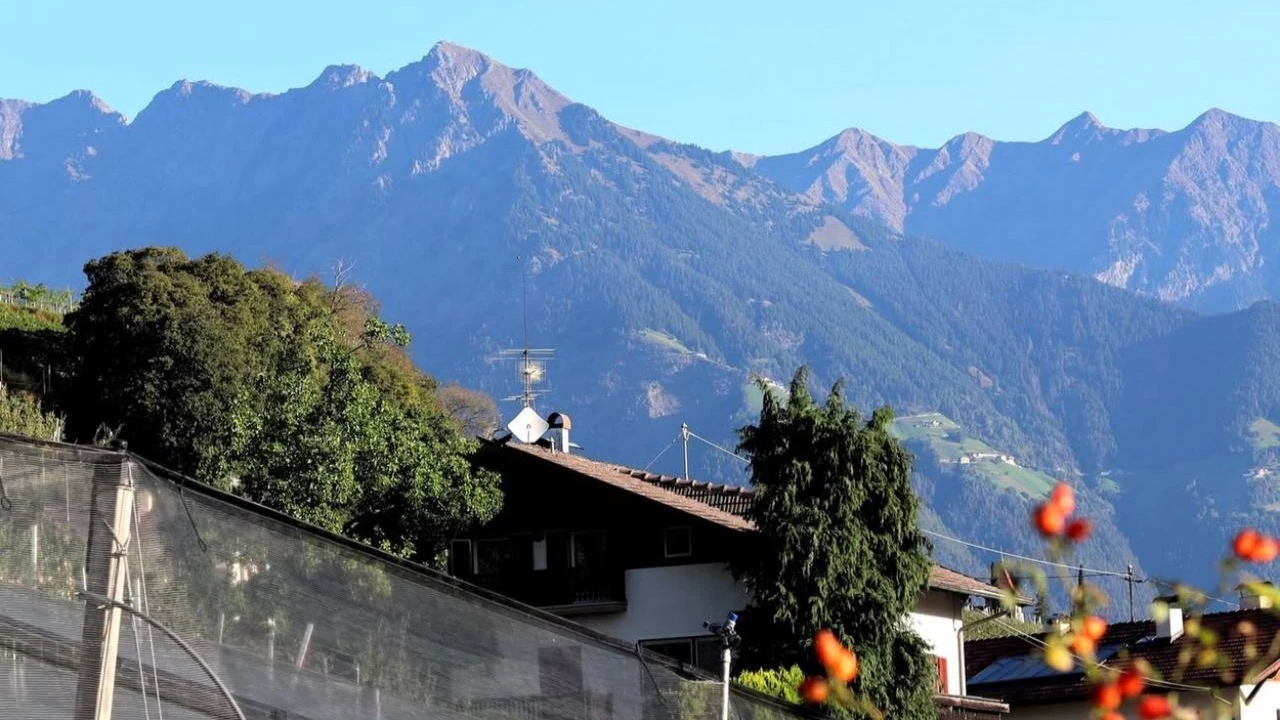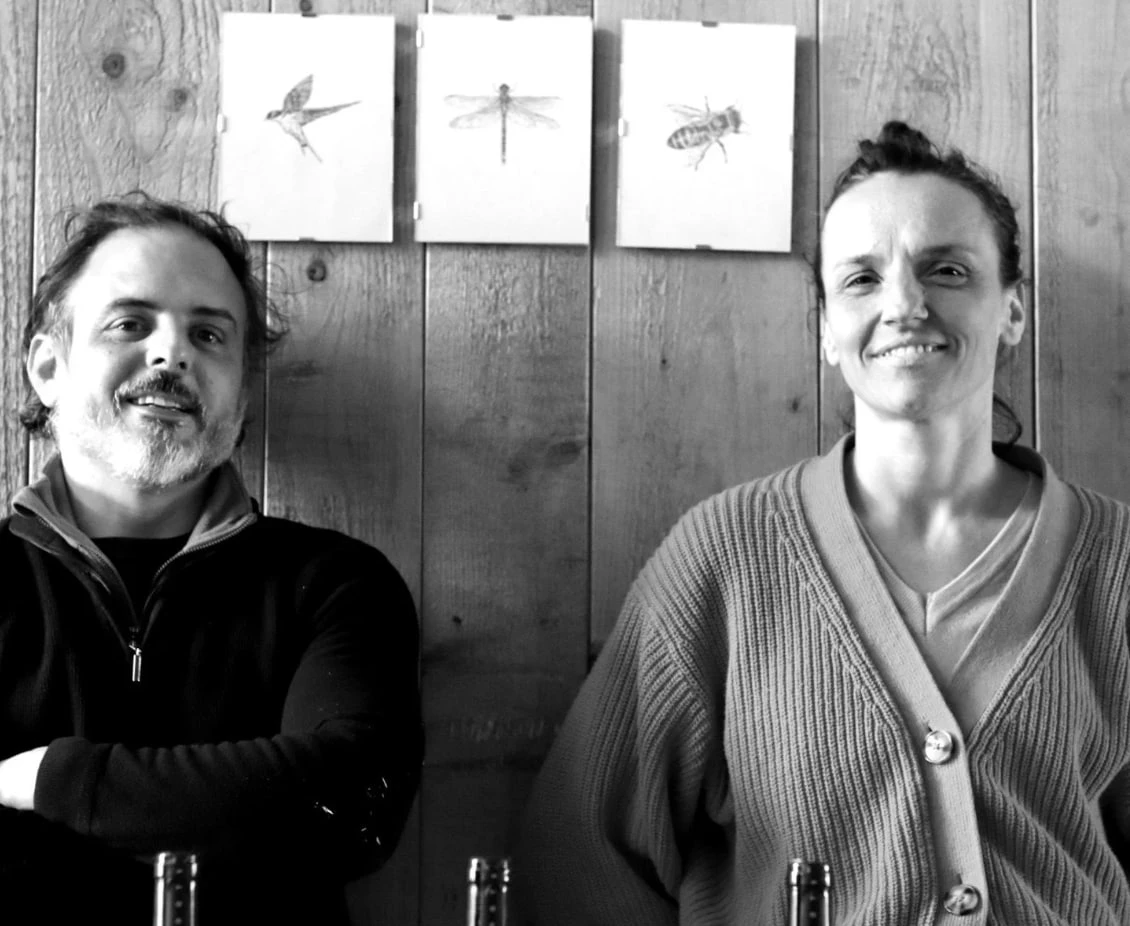What is the secret of "slow" wine? Says the co-founder of Grawü Farms

Interviewing the most interesting people from the wine world is definitely my favorite part of my job. They may be representatives of famous and fashionable wine dynasties, but it is much more interesting to talk to small producers who make extraordinary wines, preferring the author's approach to mass tastes and trends.
This time my interlocutor was Dominik Würth, the man who, together with his wife Leila Grasselli, created the Grawü project. Today their wines are recognized all over the world: from Copenhagen to New York. But in this case, behind each bottle is not ingenious marketing, but a personal story of finding one's way, mistakes, discoveries and hard work.

We had a very interesting conversation: Dominique shared his winemaking philosophy, the secrets of working with grape skins and his thoughts on the future of natural wine. I promised to visit them in October to see the Grawü winery with my own eyes.
Würth lives and works a few kilometers from Merano in South Tyrol, an amazing place in the Alps, with green meadows and valleys, where German restraint is juxtaposed with Italian expression.
Dominique's path into the world of wine did not start in a vineyard. In the late 90s, he worked as a sommelier in the best hotels and bars in Europe. It was my education, but not academic, but sensual," he recalls. - I tasted wines that I would never have been able to afford. That's how my library of tastes was formed.
This knowledge was not enough, and in 2003 Dominique went to Bordeaux - without any plan, just a love of wine and a desire to learn. He stayed there for a whole year instead of the planned three months. Later he moved to Tuscany and worked in a small biodynamic farm, did an internship in Switzerland and studied in Germany.
"Bordeaux gave me an understanding of classics, structure and tradition. And Tuscany showed me how a living land can create great wines. In Germany, I learned the technological side, but it was then that I had the desire to look for something different, something more free," says the winemaker.
By the mid-2000s, Dominique, along with Leila, had become passionate about French natural wines. They discovered that wine can be not only a "perfectly constructed product" but also a living organism with surprise, energy and history.
"I wanted to find my way. In 2011, I told the owner of the winery where I was working that I was going to do little experiments. I bought some grapes, tried different varieties and techniques. Always only organic, spontaneous fermentation, no filtration," says Dominique.
The first of their own wines came out in 2013 - a sauvignon blanc. This is how the Grawü project was born, the name of which is made up of the first syllables of the couple's surnames: GRAsselli and WÜrth.
At first it was a family hobby, but by 2017 there was already a small winery of its own and rented vineyards in the Vinschgau Valley.
"It is impossible to buy land here: a million euros per hectare. But we found partners who entrusted us with their vineyards. It is important to them that their berries do not dissolve into a mass, but become part of a particular wine," says Würth.
Almost all Grawü white wines are created with maceration on the skins. This is nothing new, says Dominik Würth: it was done in Georgia and Mesopotamia thousands of years ago. But this is the way to achieve a true expression of the vineyard, because the juice without the skins is poor, almost impersonal. Moreover, along with the skins, the wine receives microorganisms, nutrients and a dense texture.
"Tannins give white wines stability, depth and gastronomy. Gewürztraminer on the skins, for example, becomes spicy and full-bodied, not just sweet and floral," he explains.
For all his love of naturalness, Dominique Würth is not at all "radical". He doesn't work with amphorae or concrete, preferring large wooden barrels for both fermentation and aging. Temperatures during fermentation he does not control rigidly: "It's better to let it get up to 30 degrees than for me to artificially cool it down. This way the wine turns out less alcoholic and more expressive."
Dominique does not use commercial yeast as a matter of principle: "It's like drinking powdered milk instead of real milk. The uniqueness of the wine comes only from wild yeast. I make a sourdough starter from the first berries I pick - like sourdough for bread. Then the whole cellar breathes fermentation and the next batches start fermenting on their own," he says.
With this approach, it is interesting that Dominique himself believes that he does not have an authorial, "signature" wine. All Grawü wines are a reflection of his moods.
"Sometimes it's a Pinault noir, sometimes a Gewürztraminer, sometimes a Riesling. Each wine has its own soul, and each is suited to different moments in life. If you want a philosophical conversation with a friend, pour a Pinault Noir. If you're going to read, choose a GT.O. (And for a light start to the evening, choose our signature Riesling. Wine is a culture and a connection between people.
The antidote to the stress of modern times
The natural wine world experienced a boom in 2022. "It was an artificial explosion, not always sustainable. Young people today prefer cocktails and spritzes because wine is too complex a drink for them. However, I am sure that good wine will always find its connoisseur," Würth believes.
Grawü is an example of a "slow wine". The whites are aged for two to three years, and a bottle can be drunk for a week, finding new facets of flavor each time. Grawü's philosophy resists the spirit of the times.
"Today everything has to be instant - TikTok, Instagram, quick decisions. And good wine is the exact opposite of that. It takes at least 15 years to plant a vineyard and wait for good quality wine. It's an antidote to the stress of modernity, it's a slow but honest path."
When it comes to winemakers who have inspired him, Dominique recalls not so much names as impressions - Petrus in Bordeaux, Roussanne grapes from a small estate in Chateauneuf-du-Pape, Brunello from Gianfranco Soldera.
"I've always looked for a combination of lightness and substance in wine. It's not at all about price or prestige, but about the joy it conveys. In Italy they call it beva - a kind of desire to take another glass," says Würth.
I am already looking forward to visiting the winery in October. I have repeatedly found that the same wine, opened under different circumstances and in different company, can reveal itself in very different ways. And it can reveal itself especially well if the glass is filled by the winemaker himself.
This article was AI-translated and verified by a human editor
